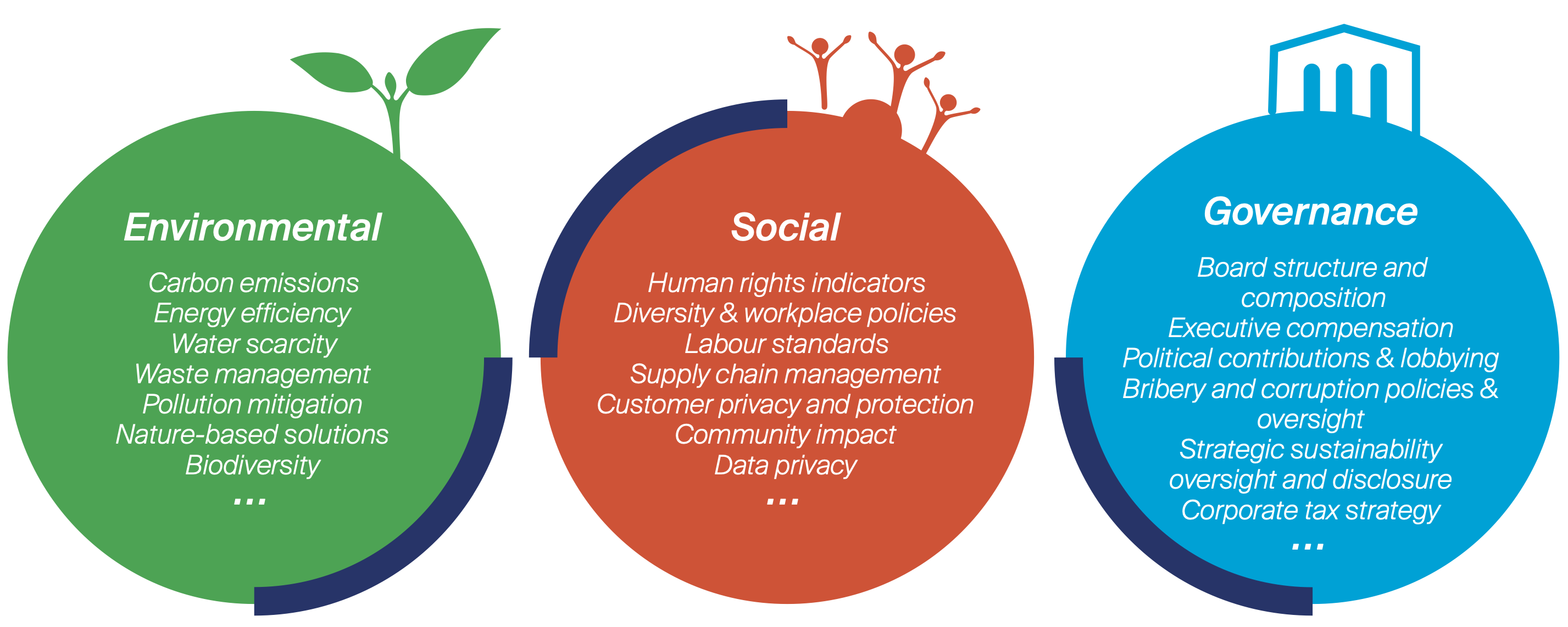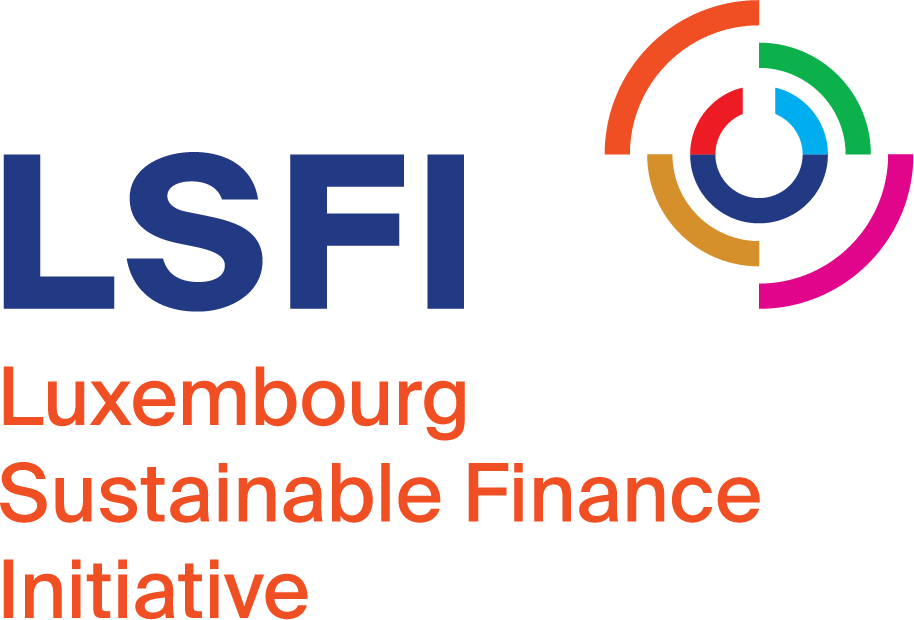Sustainable Finance
Beyond financial return.
Environmental, Social and Governance inclusion.

ESG Criteria

Why Sustainable Finance
Sustainable finance has been identified as an opportunity to shift financial flows from environmentally and socially harmful investments to alternatives that can help transition the world to a low-carbon and fair economy. In order to tackle this situation, a number of initiatives have been put in place around the globe, with further ideas being added to governments, institutions and investors agendas.
- In 2015, the United Nations adopted the 17 Sustainable Development Goals (“SDGs”).
- In December 2015, the signatories of the Paris Agreement agreed to keep the global temperature increase in this century well below 2°C above pre-industrial levels.
- Institutional investors expect sustainable investing to grow in importance over the next five years.
- Fast regulatory developments have also taken place at European level, in this respect, the European Commission published the European Green Deal on 11 December 2019.
Sustainable Finance in Luxembourg
- Luxembourg has been actively engaged in the microfinance industry since the early 1990s with the establishment of the first Luxembourg microfinance institutions.
- The Luxembourg financial centre acts as a leading international platform for sustainable finance, supporting a range of activities from responsible investment funds and blended finance to green bond listings and ESG fund labelling.
- Luxembourg is home to the world’s first platform dedicated to green securities.
- ESG fund AuM represents more than half of Luxembourg UCITS assets.
Luxembourg’s Key Facts

of AuM of Luxembourg UCITS corresponds to funds disclosing as per SFDR article 8(1)

Luxembourg holds 21% of global ESG AuM(2)

annual growth rate of ESG private market funds from 2019-2023(3)

of UCITS AuM in Luxembourg is invested in funds adhering to either Art. 8 or Art. 9 of SFDR(4)
Sources:
(1) and (4) Sustainable Finance in Luxembourg – A quantitative and qualitative overview (2022), LSFI & PWC Luxembourg
(2) The growth opportunity of the century 2022, by PWC Luxembourg
(3) https://www.luxembourgforfinance.com/en/financial-centre/sustainable-finance/ (Directorate for Development Cooperation and Humanitarian Affairs, April 2020)
Luxembourg Sustainable Finance Initiatives
In 2018, Luxembourg developed a Sustainable Finance Roadmap in collaboration with the United National Environment Program Finance Initiative. This document establishes a comprehensive sustainable finance strategy and gives recommendations in regard to how Luxembourg can seize the opportunity to mainstream sustainable finance.
National Plan for Sustainable Development 2021-2030
In December 2019, Luxembourg launched the “Luxembourg 2030: 3rd National Plan for Sustainable Development” in order to implement the 17 Sustainable Development Goals (SDGs) of the UN Agenda 2030. The plan highlights that the 169 targets and 17 SDGs are integrated and inseparable.
This joint initiative of the Luxembourg Government and the European Investment Bank (EIB) is designed to mobilise investment for climate related projects by combining a stop-loss guarantee with technical assistance.
LuxFLAG was founded as an association in July 2006 by the Government of Luxembourg and 6 other founding partners. The Agency aims to promote the raising of capital for sustainable investments by awarding a recognisable label to eligible investment vehicles amongst others.
On 2 September 2020, Luxembourg became the first European country to adopt a reference framework for sustainable bonds. The framework is also the first in the world to fully comply with the new recommendations of the European taxonomy for green financing.
In September 2016, the Luxembourg Stock Exchange launched the Luxembourg Green Exchange (LGX), the world’s first dedicated platform for green, social and sustainable securities. The LGX lists more than half the world’s green bonds.
Etika and Spuerkeess created in 1997 the Alternative Savings Account, the first sustainable banking product in Luxembourg, including strict criteria of transparency and sustainability and whereby their deposit customers enable funding of social and ecological projects at favourable interest rates. In this context, every year, Etika organizes the Velotours, a way to get to know the projects supported by the two partners via an ecological means of transport.
In early 2020, the Luxembourg government entered a strategic partnership with the University of Luxembourg in order to create a Master Track on Sustainable Finance, as well as professional certificates and fundamental and applied research in sustainable finance.
It is a Luxembourg social investment fund which was created in 2009. The creation took place thanks to a Luxembourg commitment aimed at contributing to the reduction of poverty through microfinance around the world.
The Forestry and Climate Change fund is a pioneering impact fund aiming to demonstrate that sustainable forestry within secondary & degraded tropical forests generates economic, ecological and social value and contributes to healthy landscapes, climate change mitigation & adaptation and local economic development.

